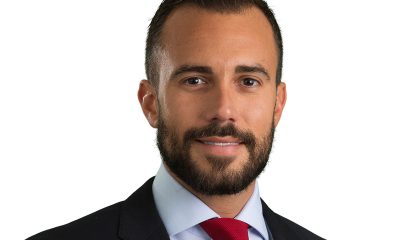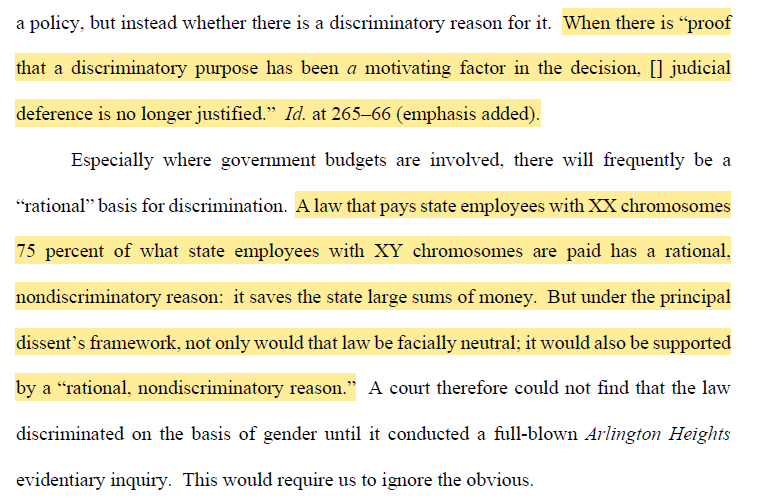National
U.S. Congress moves against anti-gay Uganda bill
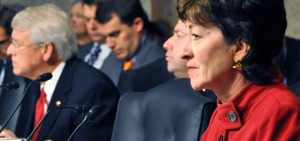
U.S. Sen. Susan Collins, who’s supporting a resolution condemning a harshly anti-gay Uganda bill, said the measure is ‘appalling and I want to convey that.’ (DC Agenda photo by Michael Key)
Lawmakers in both chambers of Congress last week introduced resolutions condemning a harshly anti-gay bill pending in Uganda.
In the Senate, the sponsor of the resolution is Sen. Russ Feingold (D-Wis.), chair of the Foreign Relations African Affairs subcommittee. The sponsor of the resolution in the House is Rep. Howard Berman (D-Calif.), chair of the House Foreign Affairs Committee.
Homosexual acts are already illegal in Uganda, but the African nation’s pending legislation would, among other things, institute the death penalty in some cases for LGBT people and require citizens to report LGBT people to the police.
In a statement, Berman said passage of the Uganda bill could interfere with efforts to address the HIV/AIDS epidemic in the country.
“The proposed Ugandan bill not only threatens human rights, it also reverses so many of the gains that Uganda has made in the fight against HIV/AIDS,” he said. “This issue has united leaders of different political and religious views in Uganda and worldwide in one common belief in the rights of all human beings regardless of sexual orientation.”
The Senate resolution goes further than the House measure, calling for repeal of the criminalization of homosexuality in other countries and urging the State Department to closely monitor human rights abuses against LGBT people abroad.
Both resolutions enjoy considerable support from lawmakers of both parties. More than three-dozen House members joined to introduce the House measure, including gay Reps. Barney Frank (D-Mass.) and Tammy Baldwin (D-Wis.), as well as Congressional Black Caucus Chair Rep. Barbara Lee (D-Calif.). On the other side of the aisle, Rep. Ileana Ros-Lehtinen (R-Fla.) has signed on in support.
Lynne Weil, spokesperson for the House Foreign Affairs Committee, said the panel would make a decision on how to proceed with the resolution in the coming weeks.
For the Senate resolution, a politically diverse group of lawmakers are co-sponsors. In addition to Sen. Ben Cardin (D-Md.), original co-sponsors included Sens. Tom Coburn (R-Okla.) and Susan Collins (R-Maine).
Collins told DC Agenda she was interested in co-sponsoring the Senate resolution because of the draconian nature of Uganda’s bill.
“This is an appalling proposal in Uganda, which suggests the death penalty for homosexual acts,” she said. “I think it’s self-evident that I would think that that’s appalling and I want to convey that.”
Mark Bromley, chair of the Council for Global Equality, said bipartisan support for the resolution shows the tremendous attention that Uganda’s bill has received from human rights advocates.
“Senators from across the ideological divide are expressing that this is a significant human rights issue and an issue that the U.S. government takes seriously,” he said.
Bromley said the resolutions are “not simply symbolic” and have a chance of passing in both chambers of Congress.
On Monday, another lawmaker expressed opposition to Uganda’s bill during a demonstration outside the Uganda mission to the United Nations in New York City, according to Human Rights First.
Rep. Carolyn Maloney (D-N.Y.) said in a statement that the “officially sanctioned bigotry” in the legislation is “profoundly disturbing.”
“It constitutes a gross violation of the universal values of individual liberty and human rights,” she said. “Such a measure goes far beyond ugliness and ignorance: it is hate in its rawest form, and it has no place in the laws of any nation.”
Maloney was joined at the demonstration by about two dozen other participants, including members of Human Rights First, Immigration Equality, the International Gay & Lesbian Human Rights Commission and Human Rights Watch. The lawmaker called on Ugandan officials to meet with human rights groups to discuss the widespread opposition to the bill.
Paul LeGendre, director of the Fighting Discrimination Program at Human Rights Watch, said during the demonstration that Uganda’s bill “represents one of the harshest discriminatory measures ever proposed in any country.”
“This bill would have disastrous effects for gay men and women in Uganda, would aggravate an already alarming trend of criminalization of homosexuality across Africa, and could spur Ugandan homosexuals to flee this persecution by attempting to seek refuge outside of the country,” he said. “The international community must continue to voice its concern to the Ugandan authorities until the text of this bill is shredded and removed from consideration.”
The path for the legislation in Uganda parliament remains in question. Bromley said he’s “been hearing different stories” about the timeline for the bill, but that it’s likely to come up for debate in the next few weeks.
“To be honest, my suspicion is that the president of Uganda would like to see this legislation disappear and so my hope is that they will sort of stretch out the consideration so that eventually the interest dies down a bit, and then, perhaps they can move from it,” he said.
Obama, Clinton stand against Uganda bill
In related news, President Obama and Secretary of State Hillary Clinton reiterated their opposition last week to the Uganda legislation in remarks at the National Prayer Breakfast in D.C.
Clinton said she contacted Ugandan President Yoweri Museveni to directly express U.S. concerns about the anti-gay legislation.
“I recently called President Museveni, whom I have known through the prayer breakfast, and expressed the strongest concerns about a law being considered in the parliament of Uganda,” she said.
Obama called the Uganda measure an “odious” bill in remarks that more broadly drew attention to LGBT issues.
“We may disagree about gay marriage, but surely we can agree that it is unconscionable to target gays and lesbians for who they are — whether it’s here in the United States or, as Hillary mentioned, more extremely in odious laws that are being proposed most recently in Uganda,” he said.
Obama and Clinton’s participation at the National Prayer Breakfast was somewhat controversial because the evangelical Christian group staging the event, known as “The Family,” has ties to Ugandan officials. David Mahati, the author of the anti-gay bill in the country’s parliament, attended past National Prayer Breakfasts, but didn’t attend this year’s event.
LGBT activists praised Obama and Clinton for their remarks. Wayne Besen, executive director of Truth Wins Out, commended Obama for “having the courage to confront those responsible for the heinous anti-gay bill in Uganda.”
Besen helped to coordinate the American Prayer Hour, protest events involving pro-LGBT religious leaders intended to counter the National Prayer Breakfast. The counter-event took place in 20 cities across the country.
“We hope that the president’s laudable stand makes it clear to Family members in the United States and Uganda that the world is watching,” Besen said in a statement. “Religion can no longer be used to justify bigotry, intolerance and persecution anywhere on the face of the Earth.”
Bromley also said Obama and Clinton’s decision to speak out against the Uganda legislation during the National Prayer Breakfast was a “very positive” move because of the religious nature of the event.
“I think clearly there were some religious voices behind the bill in Uganda, so we thought it was incredibly powerful that the president and first lady attended the breakfast, spoke from a personal perspective about religion and how this bill from any religious perspective just is unacceptable,” Bromley said.
But according to the French news agency Agence France-Presse, Uganda’s Ethics Minister James Buturo responded angrily to Obama and Clinton for speaking out against the Uganda bill.
“Somebody should tell President Obama that the parliament is doing its legislative duty in the interest of the people of Uganda,” Buturo was quoted as saying. “We cannot tell the Senate what to do. We cannot tell Congress what to do. So why do they feel that they can tell us what we should do in the interest of our people?”
National
United Methodist Church removes 40-year ban on gay clergy
Delegates also voted for other LGBTQ-inclusive measures
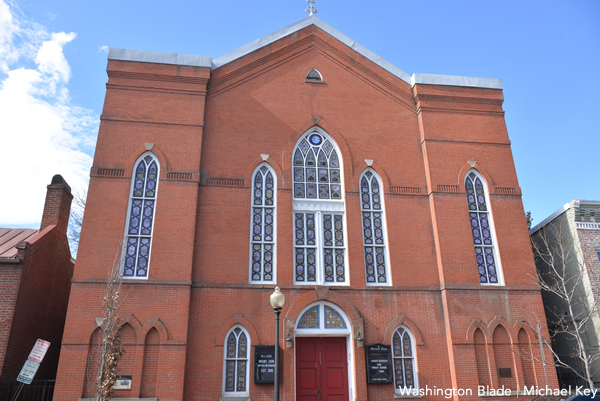
The United Methodist Church on Wednesday removed a ban on gay clergy that was in place for more than 40 years, voting to also allow LGBTQ weddings and end prohibitions on the use of United Methodist funds to “promote acceptance of homosexuality.”
Overturning the policy forbidding the church from ordaining “self-avowed practicing homosexuals” effectively formalized a practice that had caused an estimated quarter of U.S. congregations to leave the church.
The New York Times notes additional votes “affirming L.G.B.T.Q. inclusion in the church are expected before the meeting adjourns on Friday.” Wednesday’s measures were passed overwhelmingly and without debate. Delegates met in Charlotte, N.C.
According to the church’s General Council on Finance and Administration, there were 5,424,175 members in the U.S. in 2022 with an estimated global membership approaching 10 million.
The Times notes that other matters of business last week included a “regionalization” plan, which gave autonomy to different regions such that they can establish their own rules on matters including issues of sexuality — about which international factions are likelier to have more conservative views.
Federal Government
Republican state AGs challenge Biden administration’s revised Title IX policies
New rules protect LGBTQ students from discrimination

Four Republicans state attorneys general have sued the Biden-Harris administration over the U.S. Department of Education’s new Title IX policies that were finalized April 19 and carry anti-discrimination protections for LGBTQ students in public schools.
The lawsuit filed on Tuesday, which is led by the attorneys general of Kentucky and Tennessee, follows a pair of legal challenges from nine Republican states on Monday — all contesting the administration’s interpretation that sex-based discrimination under the statute also covers that which is based on the victim’s sexual orientation or gender identity.
The administration also rolled back Trump-era rules governing how schools must respond to allegations of sexual harassment and sexual assault, which were widely perceived as biased in favor of the interests of those who are accused.
“The U.S. Department of Education has no authority to let boys into girls’ locker rooms,” Tennessee Attorney General Jonathan Skrmetti said in a statement. “In the decades since its adoption, Title IX has been universally understood to protect the privacy and safety of women in private spaces like locker rooms and bathrooms.”
“Florida is suing the Biden administration over its unlawful Title IX changes,” Florida Gov. Ron DeSantis wrote on social media. “Biden is abusing his constitutional authority to push an ideological agenda that harms women and girls and conflicts with the truth.”
After announcing the finalization of the department’s new rules, Education Secretary Miguel Cardona told reporters, “These regulations make it crystal clear that everyone can access schools that are safe, welcoming and that respect their rights.”
The new rule does not provide guidance on whether schools must allow transgender students to play on sports teams corresponding with their gender identity to comply with Title IX, a question that is addressed in a separate rule proposed by the agency in April.
LGBTQ and civil rights advocacy groups praised the changes. Lambda Legal issued a statement arguing the new rule “protects LGBTQ+ students from discrimination and other abuse,” adding that it “appropriately underscores that Title IX’s civil rights protections clearly cover LGBTQ+ students, as well as survivors and pregnant and parenting students across race and gender identity.”
Federal Government
4th Circuit rules gender identity is a protected characteristic
Ruling a response to N.C., W.Va. legal challenges
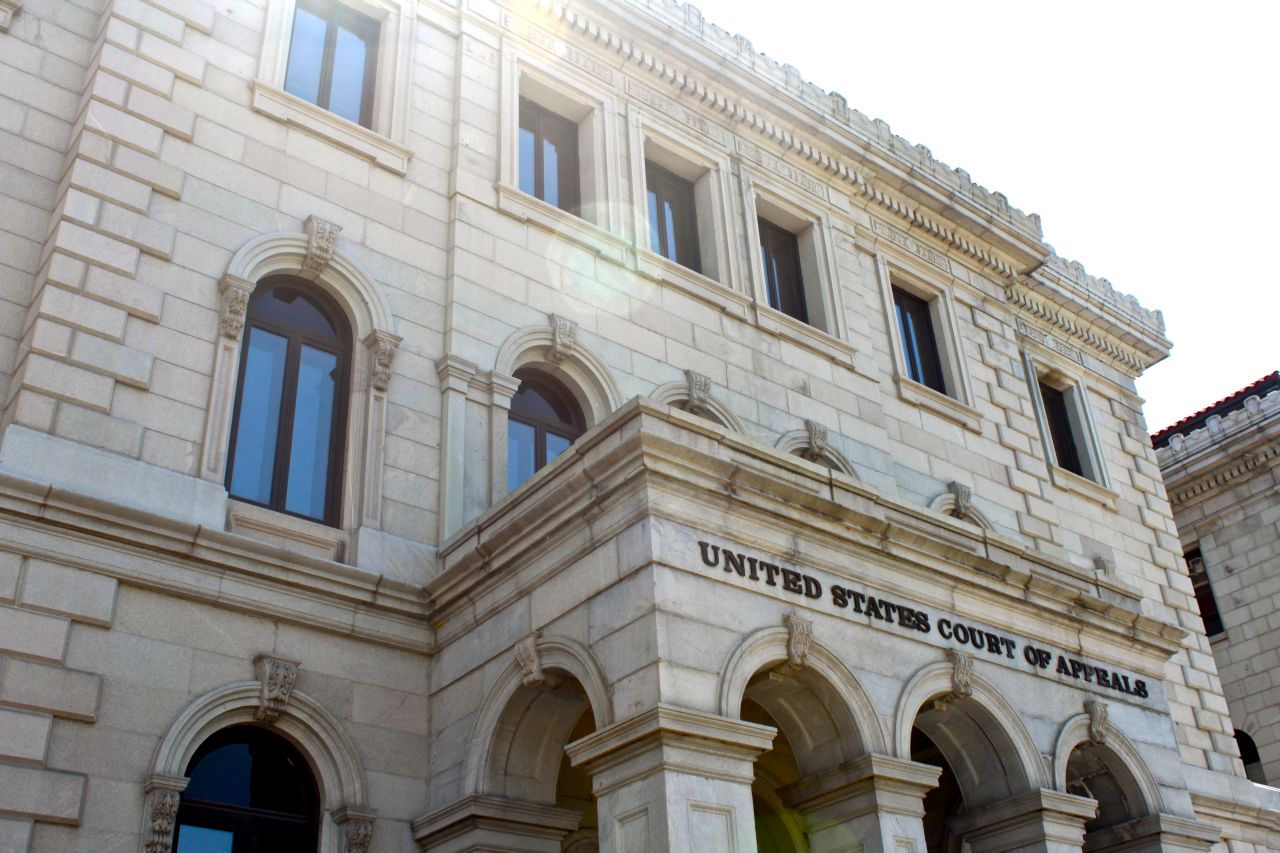
BY ERIN REED | The 4th U.S. Circuit Court of Appeals ruled Monday that transgender people are a protected class and that Medicaid bans on trans care are unconstitutional.
Furthermore, the court ruled that discriminating based on a diagnosis of gender dysphoria is discrimination based on gender identity and sex. The ruling is in response to lower court challenges against state laws and policies in North Carolina and West Virginia that prevent trans people on state plans or Medicaid from obtaining coverage for gender-affirming care; those lower courts found such exclusions unconstitutional.
In issuing the final ruling, the 4th Circuit declared that trans exclusions were “obviously discriminatory” and were “in violation of the equal protection clause” of the Constitution, upholding lower court rulings that barred the discriminatory exclusions.
The 4th Circuit ruling focused on two cases in states within its jurisdiction: North Carolina and West Virginia. In North Carolina, trans state employees who rely on the State Health Plan were unable to use it to obtain gender-affirming care for gender dysphoria diagnoses.
In West Virginia, a similar exclusion applied to those on the state’s Medicaid plan for surgeries related to a diagnosis of gender dysphoria. Both exclusions were overturned by lower courts, and both states appealed to the 4th Circuit.
Attorneys for the states had argued that the policies were not discriminatory because the exclusions for gender affirming care “apply to everyone, not just transgender people.” The majority of the court, however, struck down such a claim, pointing to several other cases where such arguments break down, such as same-sex marriage bans “applying to straight, gay, lesbian, and bisexual people equally,” even though straight people would be entirely unaffected by such bans.
Other cases cited included literacy tests, a tax on wearing kippot for Jewish people, and interracial marriage in Loving v. Virginia.
See this portion of the court analysis here:
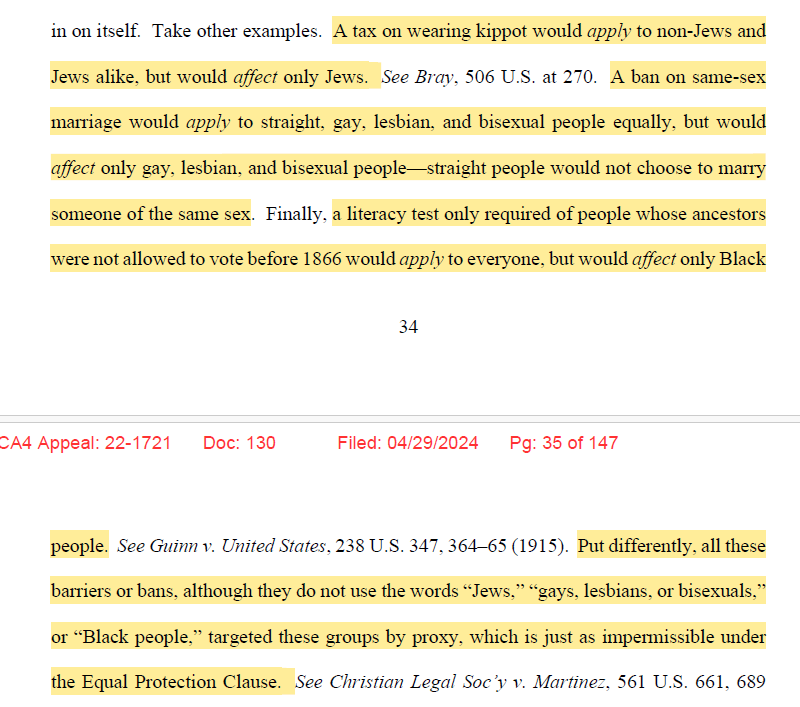
Of particular note in the majority opinion was a section on Geduldig v. Aiello that seemed laser-targeted toward an eventual U.S. Supreme Court decision on discriminatory policies targeting trans people. Geduldig v. Aiello, a 1974 ruling, determined that pregnancy discrimination is not inherently sex discrimination because it does not “classify on sex,” but rather, on pregnancy status.
Using similar arguments, the states claimed that gender affirming care exclusions did not classify or discriminate based on trans status or sex, but rather, on a diagnosis of gender dysphoria and treatments to alleviate that dysphoria.
The majority was unconvinced, ruling, “gender dysphoria is so intimately related to transgender status as to be virtually indistinguishable from it. The excluded treatments aim at addressing incongruity between sex assigned at birth and gender identity, the very heart of transgender status.” In doing so, the majority cited several cases, many from after Geduldig was decided.
Notably, Geduldig was cited in both the 6th and 11th Circuit decisions upholding gender affirming care bans in a handful of states.
The court also pointed to the potentially ridiculous conclusions that strict readings of what counts as proxy discrimination could lead to, such as if legislators attempted to use “XX chromosomes” and “XY chromosomes” to get around sex discrimination policies:
Importantly, the court also rebutted recent arguments that Bostock applies only to “limited Title VII claims involving employers who fired” LGBTQ employees, and not to Title IX, which the Affordable Care Act’s anti-discrimination mandate references. The majority stated that this is not the case, and that there is “nothing in Bostock to suggest the holding was that narrow.”
Ultimately, the court ruled that the exclusions on trans care violate the Equal Protection Clause of the Constitution. The court also ruled that the West Virginia Medicaid Program violates the Medicaid Act and the anti-discrimination provisions of the Affordable Care Act.
Additionally, the court upheld the dismissal of anti-trans expert testimony for lacking relevant expertise. West Virginia and North Carolina must end trans care exclusions in line with earlier district court decisions.
The decision will likely have nationwide impacts on court cases in other districts. The case had become a major battleground for trans rights, with dozens of states filing amicus briefs in favor or against the protection of the equal process rights of trans people. Twenty-one Republican states filed an amicus brief in favor of denying trans people anti-discrimination protections in healthcare, and 17 Democratic states joined an amicus brief in support of the healthcare rights of trans individuals.
Many Republican states are defending anti-trans laws that discriminate against trans people by banning or limiting gender-affirming care. These laws could come under threat if the legal rationale used in this decision is adopted by other circuits. In the 4th Circuit’s jurisdiction, West Virginia and North Carolina already have gender-affirming care bans for trans youth in place, and South Carolina may consider a similar bill this week.
The decision could potentially be used as precedent to challenge all of those laws in the near future and to deter South Carolina’s bill from passing into law.
The decision is the latest in a web of legal battles concerning trans people. Earlier this month, the 4th Circuit also reversed a sports ban in West Virginia, ruling that Title IX protects trans student athletes. However, the Supreme Court recently narrowed a victory for trans healthcare from the 9th U.S. Circuit Court of Appeals and allowed Idaho to continue enforcing its ban on gender-affirming care for everyone except the two plaintiffs in the case.
Importantly, that decision was not about the constitutionality of gender-affirming care, but the limits of temporary injunctions in the early stages of a constitutional challenge to discriminatory state laws. It is likely that the Supreme Court will ultimately hear cases on this topic in the near future.
Celebrating the victory, Lambda Legal Counsel and Health Care Strategist Omar Gonzalez-Pagan said in a posted statement, “The court’s decision sends a clear message that gender-affirming care is critical medical care for transgender people and that denying it is harmful and unlawful … We hope this decision makes it clear to policy makers across the country that health care decisions belong to patients, their families, and their doctors, not to politicians.”
****************************************************************************

Erin Reed is a transgender woman (she/her pronouns) and researcher who tracks anti-LGBTQ+ legislation around the world and helps people become better advocates for their queer family, friends, colleagues, and community. Reed also is a social media consultant and public speaker.
******************************************************************************************
The preceding article was first published at Erin In The Morning and is republished with permission.

